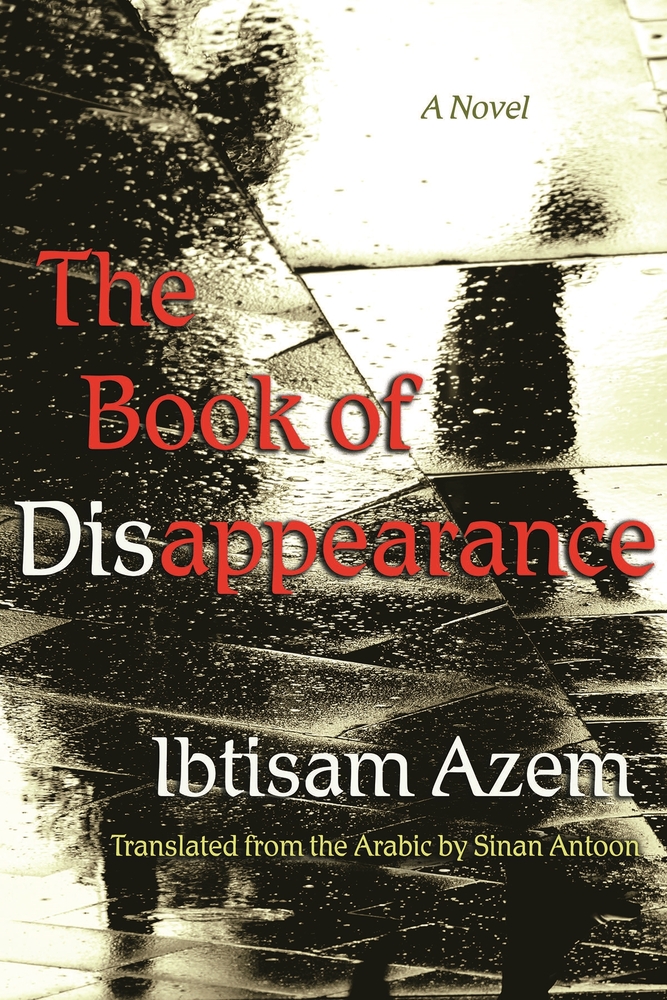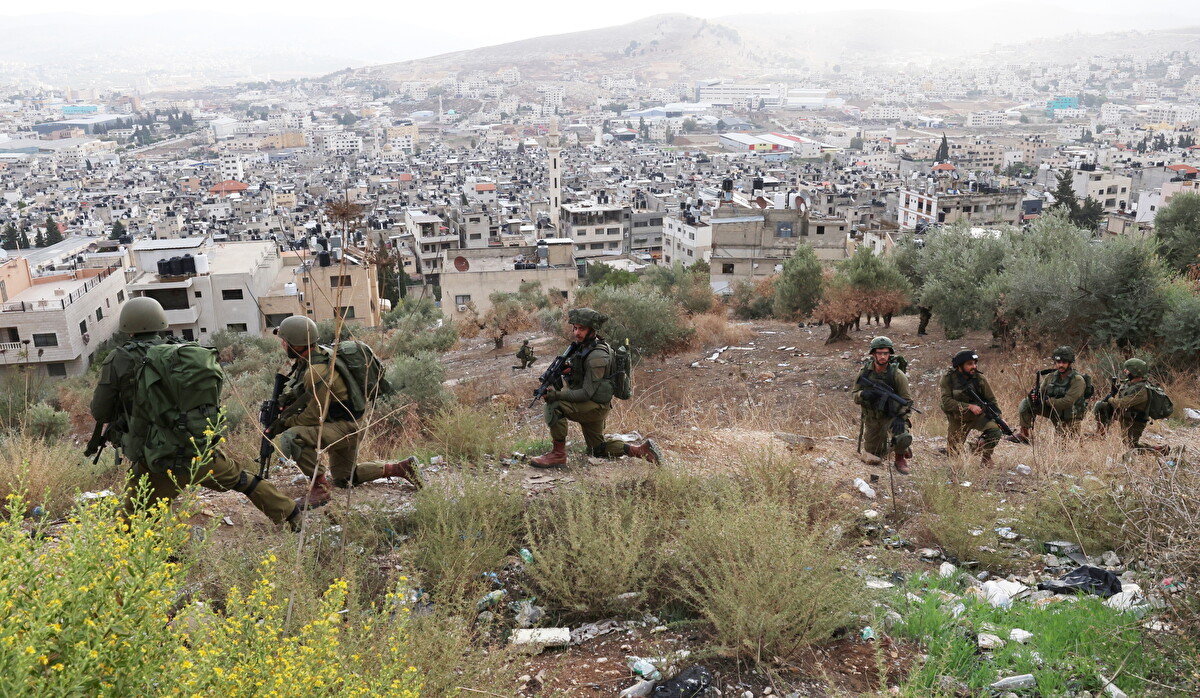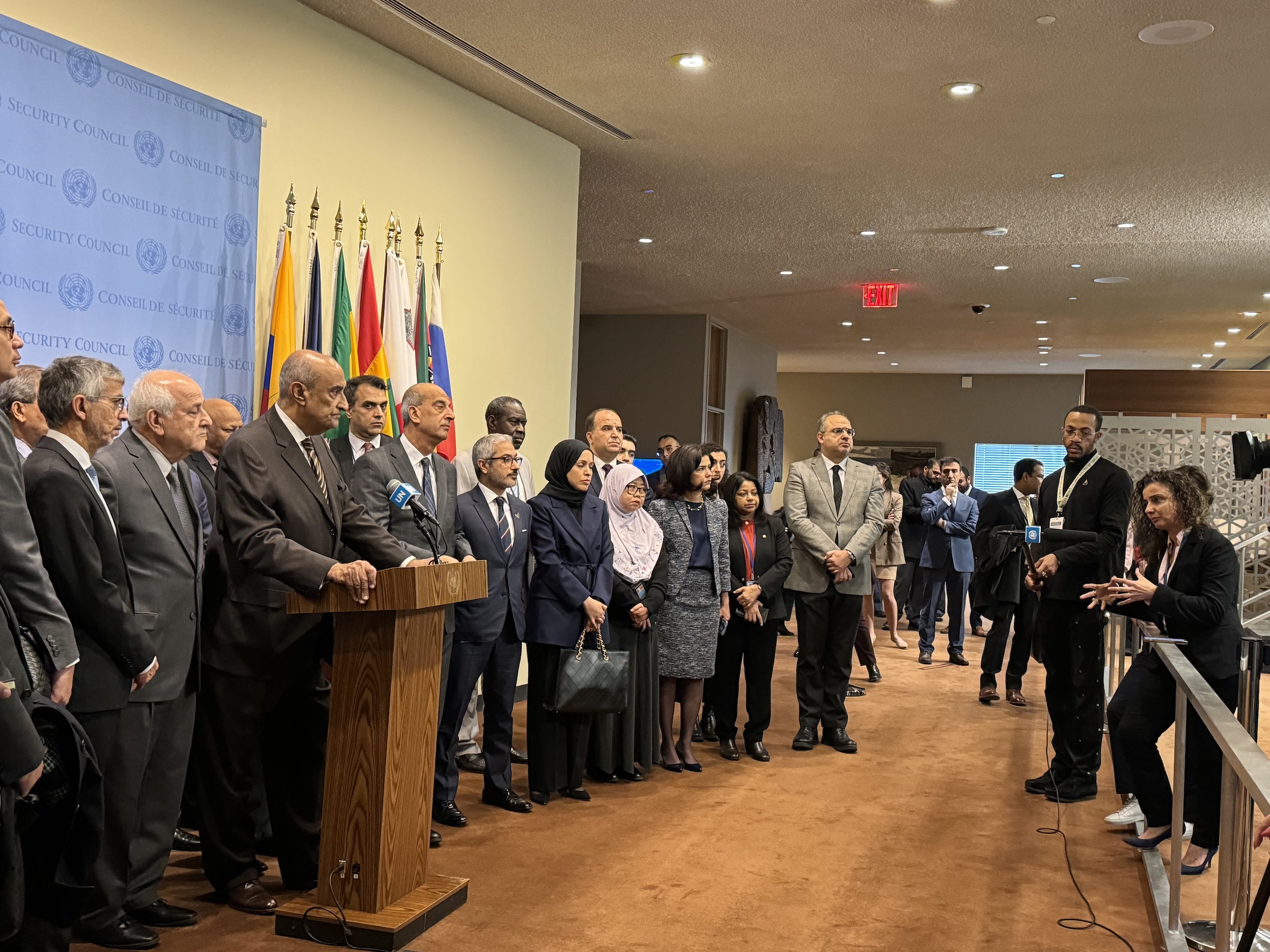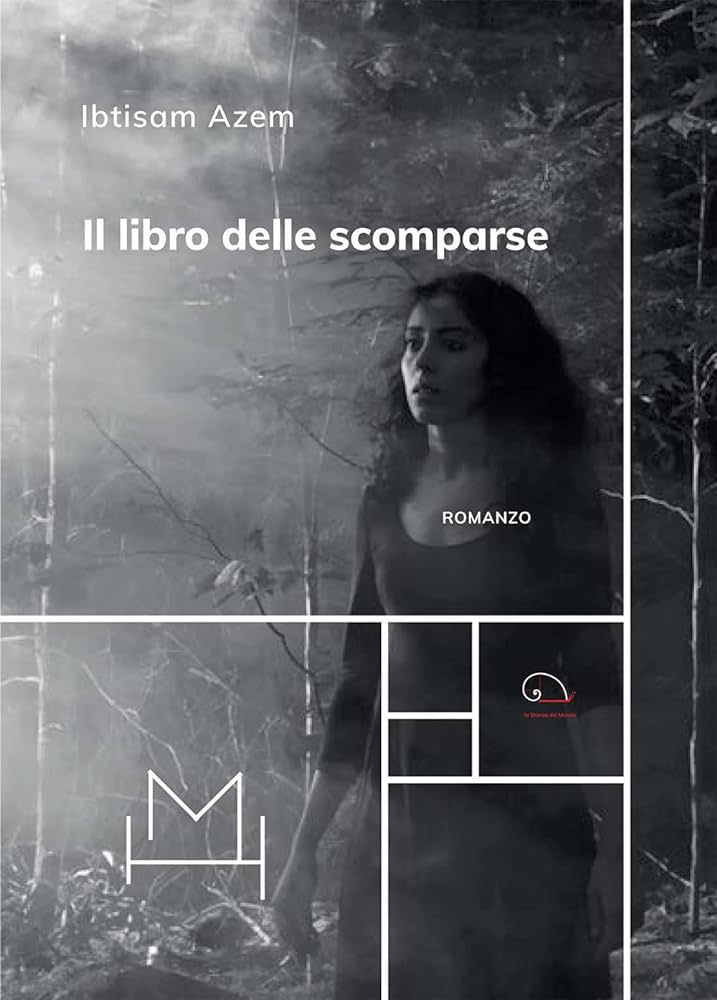One advantage of working as a correspondent at the United Nations is being able to cover the reaction to the news of the world, having colleagues from more than 193 countries always beside you. Those journalists, who are reporting in so many different languages, also display different sensitivities within the global community. During the daily briefing, Stephane Dujarric, the spokesperson of the UN Secretary General, has to answer questions coming from a diverse press corps. In those briefings, at times the most important moment to take notes is not when he answers (usually shielded with clever diplomatic language) but when those questions are posed.

Ibtisam Azem, a senior correspondent covering New York and the United Nations for Al-Araby Al-Jadeed newspaper, is one of the colleagues I listen to attentively. An experienced Palestinian journalist, Ibtisam is also a novelist and short story writer. She has published two novels in Arabic. Her latest, The Book of Disappearance (Sifr al-Ikhtifa, 2014), was translated recently into several languages including English, German, and Italian. Her first short story collection is forthcoming in spring of 2024. Azem studied in Germany, where she graduated from Freiburg University with an M.A. in Middle Eastern (Islamic) Studies, with minors in German and English Literature. She also holds an M.A. in Social Work from New York University.
Months ago, when I read Il libro della scomparsa in its magnificent Italian translation, I was so intrigued by the story narrated that I posed some questions about this unique novel, hoping my colleague-friend would accept an interview. The story develops imagining 48 hours of life in Israel seen through the prism of a friendship between Alaa and Ariel, a Palestinian bus driver and an Israeli journalist.
Ibtisam accepted my invitation to be interviewed, but while she was answering my questions, October 7th came. After the terrible bloody day in Israel caused by Hamas, and after the reaction of Israel toward Gaza deepened the tragedy that we have all seen unfold, I posed more questions to Ibtisam. At that point, I didn’t know if she was planning to continue with an interview that had started with several intense conversations months before at the UN Headquarters. While I was losing hope, on this Thanksgiving day in the U.S., Ibtisam sent what I was waiting for.

I found in the story she imagined in her novel, a deep mirror that can help Americans and Europeans, with varying knowledge of the conflict, to reflect on the reasons behind this 75-year tragedy in the land of two people and why this issue has the uncomfortable status of being the oldest confronted by the UN and the most difficult yet to be resolved.
Can peace and prosperity for both Palestinians and Israelis still be reached? In the search for an answer, several clues can come from the reading of Azem’s moving novel.
Stefano Vaccara: In your novel that was written and published in Arabic almost ten years ago and was translated to different languages, including Italian last year, all Palestinians disappear from their homeland suddenly. Do you see any connection to what is happening today in Gaza? Did you expect something like what happened on October 7th could have happened or did it take you by surprise? And did you expect that the Israeli reaction against Gaza would be what it has been so far?
Ibtisam Azem: “The novel was published for the first time in Arabic in 2014. The disappearance in the novel is symbolic on several levels. It was both a warning of what might take place in the future, but also a mirror for what happened in the past, during the Nakba in 1947-1949 and which is still ongoing in a way. Briefly, during the Nakba, Zionist militias (which later became the Israeli army) committed massacre and ethnic cleansing (as described also by many historians including the renowned Israeli historian Ilan Pape in his book “The Ethnic Cleansing Of Palestine”) displaced 750,000 Palestinians, destroyed more than 500 villages, and prevented Palestinians from returning to their homes despite UN and SC resolutions that guarantee the Palestinian right of return for refugees and self-determination.
That “past” is still in the making and shaping the life of Palestinians all over the world–and not only in their historic homeland. And with the war on Gaza we see unbelievable mass killing and loss of lives in our new century. But we look at the past and talk about it, because that is important for the future we want to build and don’t want to have repeated. The past is always at work in what kind of future one wants.
The situation in Palestine and Israel is not a struggle between two equal parties. It is a struggle in a settler-colonial context. The other point is that Palestinians are invisible to many Israelis and to many in Western countries and are not seen as equal or full humans. If we look at Gaza today and the killing of more than 14 thousand people, most of whom are women and children, the question every Western politician should pose, no matter where they stand politically, is why are Palestinian lives so unimportant? Why is it so easy to have these Palestinian bodies disappear? Ending the war is a decent and normal response for human beings, but it is deemed outrageous for many Western countries that one asks for a ceasefire.
The citizens of these countries must ask themselves if they want their tax money to pay for weapons that kill children and Palestinians in general, or do they want to be part of the real solution for all and for freedom, justice, and self- determination for Palestinians?”

Do you have contact with relatives and friends in Gaza or Palestine? What is the situation like for Palestinians in the West Bank? And in Israel?
“I don’t have relatives in Gaza itself, but have friends from Gaza and some of them have lost dozens of family members. One doesn’t have to be Palestinian to be affected by or to stand against the war, killing, displacement, and massacres. There are many American Jews who are at the forefront of the protests and who oppose the war and the killing of Palestinians. For other Palestinians, what is taking place in Gaza reminds them of what took place during the Nakba; the killing and ethnic cleansing and the feeling that the Palestinian body, no matter where it is geographically, is subject to attack and killing; it is never safe. We have witnessed that the attacks by settlers in the occupied territories have doubled not only in recent years, but in the last few weeks. Israeli forces have killed at least 100 Palestinians in the West Bank and Jerusalem in the last month alone. In addition to burning olive trees and attacking farmers and other violations. These are not new, but have intensified in recent weeks. What are the EU and Western countries doing to stop them? Nothing–despite the fact that many of the projects that are torched and the schools that are destroyed were built with European funds. All they do is verbal objections. At the same time, weapons continue to be exported to Israel and it continues to receive logistical support, which means these countries are not ‘neutral,’ but they are complicit in killing Palestinians”.
Some say that because of this war we could eventually move towards peace and a stable State for the Palestinians. Possible? Do you still hope for peace?
“Yes, I never lost hope that justice will prevail. Peace is a hollow word if it’s not linked to basic matters such as justice, self-determination, reparations, and the right of return for refugees and freedom, amongst others. I don’t know if I will live to see the day when my Palestinian people are free, but I know that one day we will get there. This freedom, equality, and justice for Palestinians should not be interpreted as being against Israelis. It is actually in their interest, because a people that oppresses another people are not themselves free.
The freedom of the Palestinian people is linked to the freedom of other peoples and groups that suffer oppression, including, for example, indigenous people and blacks in the US. It is especially necessary for me to say that, as I live in the US and it is a settler colonial country. This country’s support in billions of dollars for Netanyahu’s government cannot be viewed separately from the ongoing oppression of minorities whose freedom will lead to Palestinian freedom. One example that is relevant here is the coordination and cooperation between US police departments and the Israeli police, and the IDF and the training. So the struggles of oppressed people are interconnected–as are their interests, just as the regimes that oppress them are interconnected and support each other”.

Reflecting on the events that have happened since October 7, is there anything in your book that you would change now? Or is there anything in the novel that has taken on new meaning for you?
“It is difficult for me to answer this question, at least at this moment when a Palestinian child is killed in Gaza every ten minutes according to the WHO. When your readers finish reading this interview, which might take 20 minutes, that means two more Palestinian children would have been killed in Gaza. Pause and let this sink in. These lives are not killed in a void. They have friends and loved ones, memories, smiles, and pain. Like other Palestinians in Palestine and all over the world, I’m still trying to process the horror I see. I don’t think I can now. I don’t think many people in the world are able to process the killing and destruction inflicted on Gaza.
One of the themes of the novel–and it is manifested through the character of the grandmother and her grandson–is the loneliness felt by the Palestinian who is colonized. The loneliness Palestinians carry wherever they live. I don’t deny that I personally felt and still feel it. It has become even deeper now. I don’t want to sound pessimistic. Pessimism is a luxury at this point”.

Is the character of Alaa’s grandmother based on your own family?
“It is inspired by my maternal grandmother who was displaced from Jaffa, but stayed in historic Palestine after Israel was established. I grew up surrounded with love, but also a lot of trauma in a family that has a lot of survivors from the Nakba, which is still ongoing in that there is ongoing oppression on so many levels, including the laws.
There are more than fifty laws that discriminate against Palestinians. Let alone discrimination in everyday life, land expropriation, killing, and detention for long periods. I personally experienced and witnessed a lot and these experiences are reflected in my writings. However, the novel is not autobiographical and imagination plays an important role”.
The book makes the point that Jaffa has a rich history and Tel Aviv, created only a century ago, cannot make it disappear. In over three thousand years of history in Jaffa, Muslims, Christians and Jews often lived under different domination without cancelling each other’s past. Do you believe, like Alaa’s grandmother, that places have a memory that you cannot cancel?
“Memory, both personal and collective, plays an important role in the novel. But there is what I call the memory of place. It is no less than others and it plays an equally important role. Wherever we go in the world, not just in Palestine, we should ask ourselves what is the official narrative and whose narrative and story are being disseminated and told? Zionist gangs killed or displaced most of the Palestinian inhabitants of Jaffa. There were more than 100,000, most of whom Palestinians, of which only 4000 were left in the city. They were placed in ghettos, and that is what the Israeli authorities called them. They tried to erase Palestinian history in that place. That is why the place becomes a major character in the novel. Jaffa was the most important and biggest Palestinian city economically and culturally before the Nakba. Tel Aviv is a symbol of the new state and Israeli colonialism. It was literally built on the land of Jaffa and its villages, and it attempts to erase Palestinian memory and take its place.
When we see the images of the massive destruction in Gaza and the nonstop bombing, it is a repetition of what took place 75 years ago. Calling Palestinians “human animals” and “savages” and other dehumanizing and demonizing terms by Israeli officials is not new. I grew up hearing that “a good Palestinian is a dead Palestinian,” as well as other colonial statements and acts. It would be a mistake to think that the massacres in Gaza and attacks on hospitals and schools and people will stay in Gaza or will only be against Palestinians. Continued Western silence will give a green light to other regimes that think if they have the power they are free to do whatever they want. The law of the jungle has triumphed over ‘international law’ at present.
There is also a clear double standard. Western countries support Ukraine in defending its territory and people against Russian aggression, but supply Israel with weapons and funds and are silent when five thousand Palestinian children have been killed. Why is the blood of Palestinian children so cheap?”

When the Palestinians disappear, the Israelis have different reactions: Ariel thinks that the Israeli government and army could be involved, and the reader fears that his country could be capable of genocide. Others have mixed reactions, like the person who doesn’t understand how they could do this to him because he was eating the Palestinians’ food every day. What do you want to communicate about these seemingly different reactions to the disappearance? Do you see a common thread in the reactions?
“The different reactions to the disappearance of Palestinians illuminate Israeli society, which has its complexity like any other society. A major reason why I wrote the novel was to confront the question of how any people– Israelis in this case–would react when those they deem to be the “enemy” disappear. The novel tries to give characters their depth and nuance, even those characters with whom I disagree politically. They have a right to be three-dimensional”.

The issue of disappearance is not resolved by the end of the novel. What conclusions do you think will be drawn by readers? Is there a conclusion that you would like readers to draw?
“I write because I consider myself a witness to an era and part of a people who only seek freedom. I don’t know what conclusions will be drawn by readers. Whatever they are they will say more about them than about the novel itself–at least in the first reading. There are those who will like it and those who won’t. What I wish is for my writing to provide literary pleasure first and foremost, but also to challenge their conscience and their perspective. To take readers further and be the beginning of a journey to different worlds.
I try to write an alternative history. Art and creativity for oppressed and colonized people–whether that be Blacks and native people in the US or in Africa, or those in Iraq, or Afghanistan– is an alternative voice representing those narratives that don’t make it to Western screens and news and are rarely taught in history books. It is an attempt to stay with those who are oppressed economically, politically, and socially because of race, class, and gender, and understanding how major events shape their lives. It is an attempt to search for humanity in a world where the voice of murder and demonizing the other is loud. I hoped that we are not mere stories or numbers for readers and we become visible as humans”.











